H-1B Visa, Things To Know
Employment-based H1-B visas are nonimmigrant visas that allow foreigners to work in the U.S. for up to six years. This program is meant for highly-skilled foreign workers like engineers, scientists, computer programmers, etc. But U.S. companies are using this work visa program to bring in cheap labor, undercutting American workers.
To put an end to the abuse of the H1-B visa program, U.S. President Donald Trump signed an executive order seeking to make changes to the program. Trump said that the country is going to enforce ‘Hire American’ rules to protect the jobs and wages of American workers.
U.S. Citizenship and Immigration Services has also announced measures to combat H-1B visa fraud. Congressman Jim Sensenbrenner has demanded abolition of the lottery system that is being used to allocate H-1B visas. He claims that this program is meant to bring in the “best and brightest” to the U.S. and that it is in need of a serious reform.
H-1B visa program H-1B visas have been capped at 65,000 visas per year. An additional 20,000 visas are granted to foreigners with degrees from U.S. institutions. H-1B visa applications are accepted in April, every year. Demand for these visas is increasing every year and the visa cap started to reach within the first few days of the application period opening, from 2014. The U.S. Congress uses a lottery system to award visas whenever the number of applications it receives exceeds the annual visa cap.
Between 2000 and 2013, the H-1B visa cap was reached only twice. But the number of applications started to increase from 2014. The immigration agency received 124,000 applications for the 2014 visa program and 236,000 for the 2017 program. However, the number of applications has dropped now and only 199,000 applications have been received for the 2018 fiscal year.
Between 2001 and 2015, the largest share of H-1B visas were awarded to Indians. Other countries that received more number of H-1B visas include China, Canada, the Philippines and South Korea. As a result of the President’s executive order on the H-1B visa program, experts claim that the same number of visas may not be issued to workers from India and other countries that have been receiving the largest share of H-1B visas.
According to the order signed by the President, the Secretary of State, the Attorney General, the Secretary of Labour and the Secretary of Homeland Security will suggest reforms to make sure only the highly-skilled receive H-1B work visas. Depending on the results of the review, the H-1B visa policy would be altered.
Source: https://www.uscitizenship.info/
 English
English  Español
Español 



